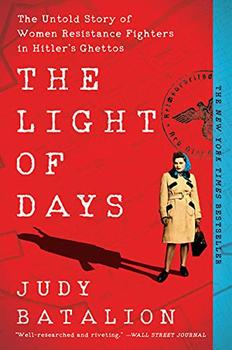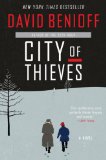Summary | Excerpt | Reading Guide | Discuss | Reviews | Beyond the book | Read-Alikes | Genres & Themes | Author Bio

On September 1, 1939, Hitler's forces invaded Poland. His administration established the Warsaw Ghetto, a fenced and guarded area of Warsaw to which all Poland's Jews were forced to relocate just over a year later. At its height it was inhabited by approximately 460,000 people, about 85,000 of whom were children. As conditions in the Ghetto deteriorated, a Jewish Polish historian, Dr. Emanuel Ringelblum, recruited people to create a secret record of the lives of the incarcerated Jews, an effort that became known as the Oneg Shabbat Project (see Beyond the Book). Novelist Lauren Grodstein uses this real-life archive as a basis for her book We Must Not Think of Ourselves.
Adam Paskow, who narrates the novel, is a 42-year-old widower. As the book opens, he's been recruited by Ringelblum to join the project. "Our task is to pay attention," Ringelblum tells him, "to listen to the stories." Paskow is assigned to write down "everything that's happened, from the time we wake up to when we go to sleep." When he asks why, Ringelblum responds that "It's up to us to write our own history…Deny the Germans the last word…perhaps after the war we can tell the world the truth about what happened." The rest of the novel comprises Paskow's entry for the Oneg Shabbat archive, containing not only his own experiences, history and what he's observing day-to-day, but also interviews with his neighbors in the Ghetto.
The result is a detailed, vivid portrait of Ghetto life. Much of what Paskow's narration conveys is rather mundane—a beleaguered population making the best of an increasingly intolerable situation—particularly in the novel's first half. Through Paskow's interviews we learn how the housewives and children around him cope with such deprivation. We read about people's former lives, their desires and dreams, their loves, and their hopes for a better future. These characters leap off the page; each is unique and beautifully drawn, with their own perspective on their ordeal. These sections read like actual transcripts, with realistic digressions and segues. Sometimes funny, sometimes tragic, sometimes harrowing, the stories form a beautiful mosaic describing the lives of those trapped in the Ghetto.
Also remarkable is the author's depiction of Paskow himself. As his story progresses, he relays his struggle to maintain his humanity, to continue to care about those around him even as doing so jeopardizes his own survival. He gradually transforms from a relatively optimistic individual ("They can't kill all of us…it's illogical") to someone who knows the situation is beyond hope ("But now I realize that we are creating a portrait of Polish Jews at the end of our history—not one peculiar moment, but the very last moment"). He's a character readers come to care deeply about.
Needless to say, any novel about the Warsaw Ghetto is unlikely to be a happy one, and this one is no exception. Even the chapters depicting the commonplace are peppered with random acts of violence and scenes of horror ("[S]ome of us had to step over starved corpses on the sidewalk"). A late plot twist sends the action into overdrive, but until then the book is mostly concerned with little things, like teaching poetry to school children or enjoying the rare treat of dried apricots. As a result, this is a slow burn of a novel, one that almost imperceptibly gets under your skin—and then remains lodged in your thoughts long after the final page.
We Must Not Think of Ourselves is a worthy addition to the genre of Holocaust literature. It's a must-read for anyone interested in World War II history—a rare novel that depicts the ordinary in a compelling way. I highly recommend it for all audiences, including book groups who enjoy historical fiction.
![]() This review was originally published in The BookBrowse Review in January 2024, and has been updated for the
November 2024 edition.
Click here to go to this issue.
This review was originally published in The BookBrowse Review in January 2024, and has been updated for the
November 2024 edition.
Click here to go to this issue.

If you liked We Must Not Think of Ourselves, try these:

by Judy Batalion
Published 2022
One of the most important stories of World War II, already optioned by Steven Spielberg for a major motion picture: a spectacular, searing history that brings to light the extraordinary accomplishments of brave Jewish women who became resistance fighters - a group of unknown heroes whose exploits have never been chronicled in full, until now.

by David Benioff
Published 2009
A writer visits his retired grandparents in Florida to document their experience during the infamous siege of Leningrad. His grandmother won't talk about it, but his grandfather reluctantly consents. The result is the captivating odyssey of two young men trying to survive against desperate odds; an intimate coming-of-age tale with an utterly ...
Your guide toexceptional books
BookBrowse seeks out and recommends the best in contemporary fiction and nonfiction—books that not only engage and entertain but also deepen our understanding of ourselves and the world around us.